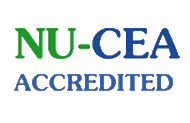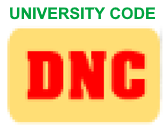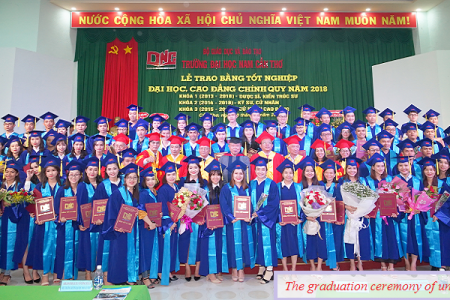Apr 19,2023
Course description MBA
PROGRAM STRUCTURE
List of courses
|
Course name |
Credit |
||||
|
Total |
Theory |
Fieldwork |
Practice |
|
|
|
General knowledge (3 credits) |
|
|
|
||
|
Philosophy |
3 |
3 |
|
|
|
|
Foreign language (English level B1) |
Condition for graduation |
||||
|
Compulsory courses ( 29 credits) |
|||||
|
Research Methods in Business |
2 |
2 |
|
|
|
|
Managerial Economics |
3 |
|
|
|
|
|
Organizational Behavior |
3 |
2 |
|
1 |
|
|
International Business Management |
3 |
|
|
|
|
|
Financial Management |
3 |
2 |
|
1 |
|
|
Human Resource Management |
3 |
1 |
1 |
1 |
|
|
Logistics Management |
3 |
1 |
1 |
1 |
|
|
Strategic Management |
3 |
1 |
1 |
1 |
|
|
Marketing Research |
3 |
2 |
|
1 |
|
|
Quantitative Methods |
3 |
2 |
|
1 |
|
|
Elective courses (not less than 21 credits) |
|||||
|
Sale Management |
3 |
2 |
|
1 |
|
|
Quality Management |
3 |
2 |
|
1 |
|
|
International trade law |
3 |
2 |
|
1 |
|
|
Social Responsibility & Business Ethics |
3 |
2 |
|
1 |
|
|
Risk Management |
3 |
2 |
|
1 |
|
|
Investment Project Management |
3 |
2 |
|
1 |
|
|
Negotiation Skills in Business |
3 |
2 |
|
1 |
|
|
Management of Business Systems |
3 |
2 |
|
1 |
|
|
Change Management |
3 |
2 |
|
1 |
|
|
Marketing Management |
3 |
2 |
|
1 |
|
|
Development Economics |
3 |
2 |
|
1 |
|
|
Brand Management |
3 |
2 |
|
1 |
|
|
Advanced Managerial Accounting |
3 |
2 |
|
1 |
|
|
Innovation Systems for Managers |
3 |
2 |
|
1 |
|
|
International Marketing |
3 |
2 |
|
1 |
|
|
Thesis |
8 |
|
|
8 |
|
1. Philosophy
This course provides content on the characteristics of Western philosophy, Eastern philosophy (including Vietnamese philosophical ideas in the most concise form), and Marxist philosophy; advanced content on Marxist-Leninist philosophy in the current period and its worldview and methodology; the complementary relationship between philosophy and other sciences, clarifying the worldview and methodology of philosophy for the development of science and for understanding, teaching, and researching objects in the field of natural science and technology; analyzing issues related to the role of sciences in social life
2. Organizational behavior
The course focuses on three important aspects of organizational behavior: individual, group, and organizational behavior. Content on individual behavior includes the foundations of personal values, attitudes and job satisfaction, personal perception, decision-making, and factors related to employee motivation. Regarding group behavior, the course emphasizes the foundations of group behavior, communication and leadership within the group, power, and conflict within the group. The course addresses issues related to the organization. Examples and typical studies are presented and discussed in parallel with theoretical explanations of organizational behavior so that learners can understand and apply them in practical work
3. Innovative and Creative Management
The course provides students with basic knowledge of the concepts of innovation, creativity, and innovative models in business management. The course includes topics related to innovative and creative management processes, such as an overview of innovation, innovative models, factors that generate profit from innovation, the origins of innovation, and the transfer of innovation. The teaching method includes a combination of classroom presentations, individual and group exercises, and discussions on specialized topics. Economic analysis methods, market rules, and strategic models will be introduced to help students easily integrate into practical work and meet job requirements after graduation
4. Management Accounting
This course provides in-depth content on management accounting, such as applying cost analysis methods, creating production and business plans, financial planning based on different scenarios, pricing products, and services, long-term investment planning, and balanced scorecards. The course also provides deep research methods in the field of management accounting to help learners form research ideas related to the course.
5. Managerial Economics
This course provides students with the necessary tools to apply fundamental economic concepts in managerial decision-making and administration. The content of the course focuses on applying both microeconomic and macroeconomic theory to the most relevant topics for managers, particularly the relationship between businesses, customers, producers, and the business environment that impacts managerial decisions. Additionally, the content of the course aims to provide foundational knowledge for students to continue their studies in a doctoral program in business administration after graduation
6. Development Economics
The Development Economics course is a part of the specialized knowledge block, which studies theories of economic growth and development; models of economic growth and development; distribution and utilization of resources for economic growth and development; and economic development policies in developing countries.
After completing the course, students will know issues related to economic growth and development; develop skills in presentation, scientific discussion, and scientific argumentation, participate in research and report scientific research results; have the ability to self-direct, a self-study attitude, accumulate knowledge to improve their professional expertise
7. Negotiation in Business
This course aims to equip students with the necessary knowledge and basic skills in negotiating in business, as well as principles for effective negotiation. The main content focuses on fundamental concepts of negotiation, why parties need to negotiate, the role of information preparation, and approaches before, during, and after the negotiation process. Students will understand basic negotiation skills such as active listening, questioning, answering questions, how to build a negotiating position, and contingency plans.
8. International Commercial Law
This course covers knowledge related to the legal aspects of international sale of goods contracts, payment in international trade, transportation and insurance law in international trade, as well as the regulations of the law to provide solutions for legal issues related to international trade activities among traders. The course also helps students identify and resolve legal issues related to the conclusion and implementation of contracts in international trade and international payments
9. International Marketing
This course aims to provide students, researchers, and business people with in-depth knowledge of international business and marketing. Through this, learners can apply international marketing strategies to search, penetrate, and develop export markets. In addition, learners are equipped with comprehensive knowledge of building a Marketing Mix program to serve the organization of export goods with high efficiency, creating favorable conditions to compete with domestic and foreign rivals
10. Marketing research
Marketing research is an essential tool for businesses to gain insights into their customers, competitors, and market trends. In this course, you will learn the fundamentals of marketing research, including how to design and execute research studies, collect and analyze data, and use the results to inform marketing decisions. Topics covered in this course may include: Introduction to Marketing Research: The purpose of marketing research, the marketing research process, and the role of marketing research in decision-making; Research Design: Formulating research objectives, selecting appropriate research methods, designing research instruments, and determining sample size and sampling methods; Data Collection Methods: Primary and secondary data collection methods, including surveys, focus groups, interviews, observation, and online data collection; Data Analysis: Quantitative and qualitative data analysis techniques, including descriptive statistics, inferential statistics, and data visualization; Market Segmentation: Identifying and segmenting target markets based on demographic, psychographic, and behavioral characteristics; Competitive Analysis: Analyzing competitor strategies, strengths, and weaknesses to identify opportunities and threats; Marketing Mix: Evaluating the effectiveness of marketing strategies, including product, price, promotion, and distribution
11. Quantitative Methodology
This course provides students with important tools for analyzing the quantitative economic relationships in economic and business research. The course also helps students build and apply appropriate quantitative economic models to different types of data, allowing them to measure and test various economic relationships. Some topics in this course include linear regression model analysis, various forms of nonlinear models, hypothesis testing of models, forecasting, etc
12. Research Methodology in Business
The course on Research Methodology in Economics mainly focuses on studying the following topics: Approaches and methods of economics research; Survey sampling methods and sample selection methods; Hypothesis testing in research; Non-parametric testing. In addition, knowledge about how to present a scientific paper is also covered.
13. Sales Management
This course is designed to provide fundamental knowledge and thinking skills in performing sales management tasks such as introducing sales work and sales management, necessary skills for sales directors such as leadership, sales forecasting, sales budgeting, organizing sales teams, managing and increasing the productivity of the sales force, and managing the sales team.
14. Advanced Quality Management
This course introduces the theoretical foundations and basic principles and methods of quality management; Terms and concepts of quality management and basic requirements in ISO 9000 standards; Basic principles for building and operating a Quality Management System in an organization, or enterprise; Basic content of international management standards such as ISO 9001, ISO 14001, SA 8000, OSHAS 18001, GMP, HACCP... applied in organizations, enterprises; Developing quality strategies and policies for organizations to meet the requirements of international economic integration. After completing the course, students can participate in quality management activities in businesses in various economic sectors, administrative and career organizations, and state management agencies
15. Strategic Management
The course provides students with fundamental to advanced knowledge about business strategy and strategic management at different levels; knowledge of evaluating and analyzing the business environment, strategic planning, and executing the strategy.
The Strategic Management course provides students with foundational to advanced business strategy and strategic management knowledge at various levels. It covers topics such as evaluating and analyzing the business environment, strategic planning, and executing strategy. The course aims to equip students with the necessary skills to develop and implement effective business strategies. Additionally, students will learn about the tools and techniques used in strategic management, including SWOT analysis, competitive analysis, and strategic mapping. The course also explores current trends and best practices in strategic management, such as the use of digital technologies in strategy development and execution. By the end of the course, students will have the ability to participate in strategic management activities in various business sectors and organizations
16. Investment Project Management
The course provides basic knowledge of the fundamental standards of financial and national economic efficiency. It explores issues related to researching, planning, organizing, managing, and monitoring the project development process to ensure that the project is completed on time, within the approved budget, and meets the specific objectives and purposes of the project while ensuring quality
17. International Business Management
This course provides essential knowledge about global business strategy analysis and cross-border business operations management. Specifically, the focus is on basic concepts of international business, international business environment, and international business strategy, rather than just focusing on cross-border business management and human resource management in a cultural environment within the parent company and subsidiary model. At the same time, students will also have access to many practical situations (cases) to improve both management thinking and business practices in reality
18. Supply Chain Management
The course provides students in Business Administration, at the Master's level, with the necessary theoretical foundations to apply in analyzing, evaluating, and developing supply chain strategies for enterprises. The content of the course aims to guide learners to recognize the importance of developing supply chains for future businesses, thereby emphasizing the importance of building and organizing supply chains. The course also aims to train students in critical thinking, presentation skills, and public relations and to apply them in building relationships between businesses, customers, manufacturers, and each business school that affects the decision-making of managers. Additionally, the content of the course also aims to provide foundational knowledge for students to pursue a Ph.D. in Business Administration after graduation
19. Marketing management
This course covers knowledge of the marketing management process at a business unit. Additionally, students will apply fundamental knowledge to collect information, analyze and evaluate business opportunities in the market, and plan marketing strategies to enhance the competitive advantage of the enterprise in the market
20. Human resource management
This course helps learners enhance their skills in managing people and organizations, grasp the latest mindset and philosophy in human resource management and organization, master the necessary tools and methods related to human resource management and organization, know how to manage and work effectively with all employees, including those who are difficult or more capable than themselves
21. Enterprise Risk Management
Enterprise Risk Management (ERM) Overview. Benefits and Responsibilities of ERM. Overview of Objective Setting Framework. COSO Objectives Framework. Risk Appetite and Strategic Planning. Techniques and Methods of Risk Identification. Effective Requirements for the Risk Identification Process. Risk Assessment Process. Techniques and Methods of Risk Assessment. Risk Response Planning. Risk Response Strategies. Relationship between ERM and Operational Risk. Identification and Classification of Operational Risks. Responsibilities in Operational Risk Management. Overview of ERM for Financial Reporting. Environment Related to Financial Reporting. ERM Framework for Financial Reporting
22. Change Management
This course provides a theoretical foundation for change in organizations, emphasizing the process of change rather than the outcome. The content of the course will help students develop a balanced view of the change in organizations. The course covers issues related to the urgency of change, the benefits of change for organizations, the impact of change on individuals within the organization, and the reasons why organizations undertake change programs
23. Financial Management
This course studies concepts related to a critical function in business management - financial management. It explores factors that impact financial management decisions such as macro and micro environments, currency fluctuations over time, and the influence of profit and risk in decision-making. Regarding long-term investment decisions in a business, it is one of the three most important decisions in financial management and creates value for the business. The course examines the foundations of long-term investment decision-making, how to establish cash flow, calculate discount rates, and common issues in building cash flow in practice.
24. Brand Management
This course equips students with knowledge on building and managing a brand, from strategic vision to specific activities. It establishes a knowledge foundation based on the main pillars of branding, understanding the role and importance of branding, and how to properly apply the characteristics of a brand in business practice.
25. Corporate Social Responsibility and Business Ethics
This course introduces concepts related to business ethics, corporate culture, social responsibility, branding, and the emergence of ethical issues in business. It teaches methods and tools to analyze ethical behavior in business and analyzes typical ethical issues in business situations. The course also helps learners understand the cultural identity of an organization
26. Graduation Thesis
A thesis is an important scientific work of students, aimed at assessing their ability to apply and synthesize the specialized knowledge they have acquired from the training program to solve practical issues related to production, business operations, and management. It combines an understanding of appropriate research methods, the development and implementation of research processes, the presentation of research results in the form of a scientific report, and the sharing of research findings at academic events and defense before the evaluation committee.



